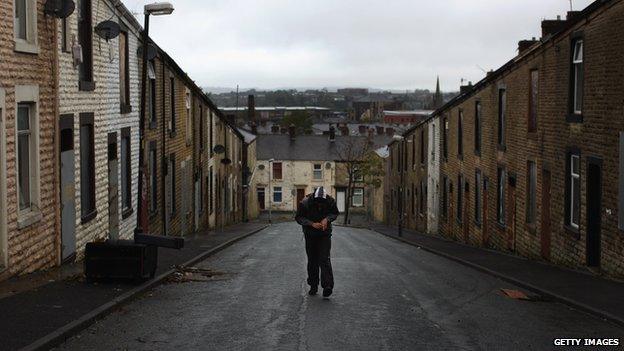Jobseeker benefit sanctions down, but ESA sanctions rise
- Published

The number of jobseekers being given benefit sanctions - a temporary cut in money - fell by nearly a third in 2014, according to government figures.
In the year to December, 605,595 Jobseeker's Allowance (JSA) claimants faced sanctions, compared with 899,576 in the previous year.
The fall is likely to be as a result of many claimants finding work.
However, those claiming employment and support allowance (ESA) saw sanctions rise by nearly two thirds.
ESA, formerly known as incapacity benefit, is paid to those who are ill or disabled.
The number of people facing a stop in ESA payments rose from 22,579 in 2013 to 36,810 in 2014.
The figures, external do not show whether the proportion of claimants being sanctioned is rising or falling.
Nor do they show how many claimants actually had payments stopped, after going through the appeals process.
The practice of stopping payments is controversial. People can have their benefits stopped or cut for various reasons, such as missing Jobcentre appointments.
A Conservative business minister in the last government questioned the way sanctions are applied, while a committee of MPs has twice called for an inquiry into how they work.
Cuts
The Department for Work and Pensions says the sanctions regime is a necessary part of the benefits system.
It said 94% of JSA claimants, and 99% of ESA claimants, were not sanctioned each month.
"We offer tailored employment support to jobseekers, and these figures show that more people are taking up that support and moving into work with the security of a regular wage," said the new employment minister, Priti Patel.
The most common reason for payments being stopped is that claimants are failing to look for work.
In extreme cases, payments can now be blocked for up to three years.
It is thought that the government may consider cuts to ESA, as part of its promised £12bn reduction in the welfare budget.